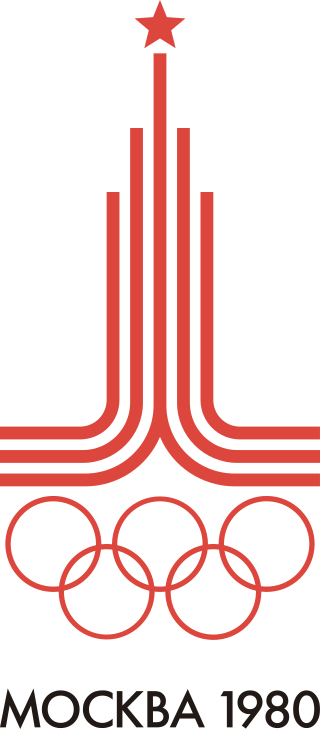
The Summer Olympic Games, also known as the Summer Olympics or the Games of the Olympiad, is a major international multi-sport event normally held once every four years. The inaugural Games took place in 1896 in Athens, Greece, and the most recent was held in 2024 in Paris, France. This was the first international multi-sport event of its kind, organized by the International Olympic Committee (IOC) founded by Pierre de Coubertin. The tradition of awarding medals began in 1904; in each Olympic event, gold medals are awarded for first place, silver medals for second place, and bronze medals for third place. The Winter Olympic Games were created out of the success of the Summer Olympic Games, which are regarded as the largest and most prestigious multi-sport international event in the world.

The Winter Olympic Games, also known as the Winter Olympics, is a major international multi-sport event held once every four years for sports practiced on snow and ice. The first Winter Olympic Games, the 1924 Winter Olympics, were held in Chamonix, France. The modern Olympic Games were inspired by the ancient Olympic Games, which were held in Olympia, Greece, from 776 BCE to 394 CE. The Baron Pierre de Coubertin of France founded the International Olympic Committee (IOC) 1,500 years later in 1894, leading to the first modern Summer Olympic Games in Athens, Greece in 1896. The IOC is the governing body of the Olympic Movement, with the Olympic Charter defining its structure and authority. The original five Winter Olympic Sports were bobsleigh, curling, ice hockey, Nordic skiing, and skating. The Games were held every four years from 1924 to 1936, interrupted in 1940 and 1944 by World War II, and resumed in 1948. Until 1992, the Summer Olympic Games and the Winter Olympic Games were held in the same year. A decision to change this was made in 1986, when during the 91st International Olympic Committee session, IOC members decided to alternate the Summer Olympic Games and the Winter Olympic Games on separate four-year cycles in even-numbered years. Also, at that same congress it was decided that 1992 Winter Olympics would be the last to be held in the same year as the Summer Games and that to change the rotation, the games that would be held in 1996 would be brought forward by two years, being scheduled to 1994. After those games, the next were to be held in 1998 when the four-year Olympic Cycle resumed.

The 1936 Summer Olympics, officially the Games of the XI Olympiad and officially branded as Berlin 1936, was an international multi-sport event held from 1 to 16 August 1936 in Berlin, Germany. Berlin won the bid to host the Games over Barcelona on the 29th IOC Session on 26 April 1931. The 1936 Games marked the second and most recent time the International Olympic Committee gathered to vote in a city bidding to host those Games. Later rule modifications forbade cities hosting the bid vote from being awarded the games.

The 1980 Summer Olympics, officially known as the Games of the XXII Olympiad and officially branded as Moscow 1980, were an international multi-sport event held from 19 July to 3 August 1980 in Moscow, Soviet Union, in present-day Russia. The games were the first to be staged in an Eastern Bloc country, as well as the first Olympic Games and only Summer Olympics to be held in a Slavic language-speaking country. They were also the only Summer Olympic Games to be held in a self-proclaimed communist country until the 2008 Summer Olympics held in China. These were the final Olympic Games under the IOC Presidency of Michael Morris, 3rd Baron Killanin before he was succeeded by Juan Antonio Samaranch shortly afterward.

The 1972 Summer Olympics, officially known as the Games of the XX Olympiad and officially branded as Munich 1972, were an international multi-sport event held in Munich, West Germany, from 26 August to 11 September 1972. It was the second Summer Olympics to be held in Germany, after the 1936 Games in Berlin, which had taken place under the Nazi rule. Germany became only the second country at that point after the United States to have two different cities host the Summer Olympics.

Rostock, officially the Hanseatic and University City of Rostock, is the largest city in the German state of Mecklenburg-Vorpommern and lies in the Mecklenburgian part of the state, close to the border with Pomerania. With around 210,000 inhabitants, it is the third-largest city on the German Baltic coast after Kiel and Lübeck, the eighth-largest city in the area of former East Germany, as well as the 39th-largest city of Germany. Rostock was the largest coastal and most important port city in East Germany.

The 1920 Summer Olympics, officially known as the Games of the VII Olympiad and commonly known as Antwerp 1920, were an international multi-sport event held in 1920 in Antwerp, Belgium.

Donna Adrian Gaines, known professionally as Donna Summer, was an American singer and songwriter. She gained prominence during the disco era of the 1970s and became known as the "Queen of Disco", while her music gained a global following.

The 1936 Winter Olympics, officially known as the IV Olympic Winter Games and commonly known as Garmisch-Partenkirchen 1936, were a winter multi-sport event held from 6 to 16 February 1936 in the market town of Garmisch-Partenkirchen, Germany. Germany also hosted the 1936 Summer Olympics, which were held in Berlin. It was the last year in which the Summer and Winter Games both took place in the same country.

The Ludwig Maximilian University of Munich is a public research university in Munich, Bavaria, Germany. Originally established as the University of Ingolstadt in 1472 by Duke Ludwig IX of Bavaria-Landshut, it is Germany's sixth-oldest university in continuous operation.

Central European Time (CET) is a standard time of Central, and parts of Western Europe, which is one hour ahead of Coordinated Universal Time (UTC). The time offset from UTC can be written as UTC+01:00. It is used in most parts of Europe and in a few North African countries. CET is also known as Middle European Time and by colloquial names such as Amsterdam Time, Berlin Time, Brussels Time, Budapest Time, Madrid Time, Paris Time, Rome Time, Prague time, Warsaw Time or Romance Standard Time (RST).

The Germany women's national football team represents Germany in international women's football. The team is governed by the German Football Association (DFB).

Germany competed at the 2004 Summer Olympics in Athens, Greece, from 13 to 29 August 2004. This was the nation's fourth consecutive appearance at the Summer Olympics after its reunification in 1990. The German Olympic Sports Confederation sent the nation's second largest delegation to the Games since its reunification. A total of 441 athletes, 250 men and 191 women, competed in 27 sports, and were nominated by DOSB at four occasions.

Central European Summer Time, sometimes referred to as Central European Daylight Time (CEDT), is the standard clock time observed during the period of summer daylight-saving in those European countries which observe Central European Time during the other part of the year. It corresponds to UTC+02:00, which makes it the same as Eastern European Time, Central Africa Time, South African Standard Time, Egypt Standard Time and Kaliningrad Time in Russia.

The United Team of Germany was a combined team of athletes from West Germany and East Germany that competed in the 1956, 1960 and 1964 Winter and Summer Olympic Games. In 1956, the team also included athletes from a third Olympic body, the Saarland Olympic Committee, which had sent a separate team in 1952, but in 1956 was in the process of joining the German National Olympic Committee. This process was completed in February 1957 after the admission of Saarland into West Germany.

The FISU World University Games, formerly the Universiade, is an international multi-sport event, organized for university athletes by the International University Sports Federation (FISU). The former name is a portmanteau of the words "University" and "Olympiad".

Germany competed at the 1992 Summer Olympics in Barcelona, Spain. It was the first time the European nation participated after German reunification in 1990 and for the first time as a single nation since 1936. Previously, West Germany and East Germany had sent independent teams to the Games. 463 competitors, 300 men and 163 women, took part in 237 events in 26 sports.

The all-time medal table for all Olympic Games from 1896 to 2024, including Summer Olympic Games, Winter Olympic Games, and a combined total of both, is tabulated below. These Olympic medal counts do not include the 1906 Intercalated Games which are no longer recognized by the International Olympic Committee (IOC) as official Games. The IOC itself does not publish all-time tables, and publishes unofficial tables only per single Games. This table was thus compiled by adding up single entries from the IOC database.

The time zone in Germany is Central European Time and Central European Summer Time. Daylight saving time is observed from the last Sunday in March to the last Sunday in October. The doubled hour during the switch back to standard time is named 2A and 2B.

Athletes from Germany have taken part in most of the modern Olympic Games held since 1896. Germany has hosted three Olympic Games, in 1936 both the Winter and Summer Games, and the 1972 Summer Olympics. In addition, Germany had been selected to host the 1916 Summer Olympics as well as the 1940 Winter Olympics, both of which had to be cancelled due to World Wars. After these wars, Germany was banned from participating in the 1920, 1924 and 1948 Olympics.
















